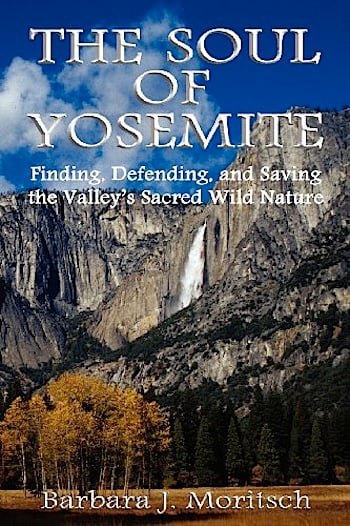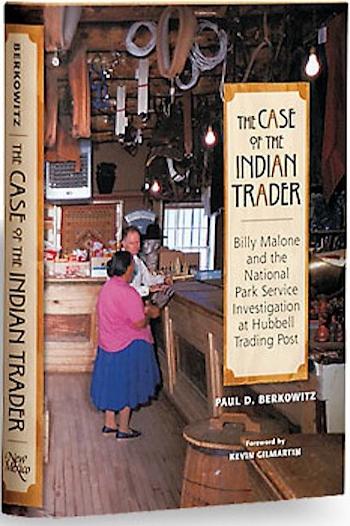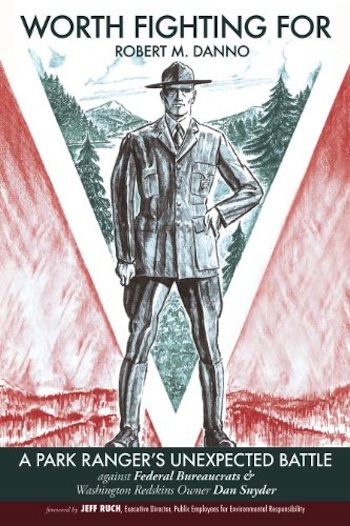Written words have a sort of magical property that spoken language does not. For one thing, they are nailed down permanently. That is why a government official will ask you to telephone him/her about any question more controversial than “What time is it?”
With a telephone call our bureaucrat has the precious gift of deniability; “I can’t recall that conversation, your honor,” or “Apparently, I was misunderstood; I certainly would not promise something like that!”
This is not true of the written word; there it is; laid out in ink or electrons, exactly what you said, right in front of God and everybody.
As noted, the written word has an almost supernatural quality to it. Our Muslim neighbors place their confidence in the Koran as they trust it to be the written word of God as received by Mohammed and thus the phrase “It is written" has profound significance in that community.
Understandably, with all that magic, important folks down through the ages have tried to control what was written and who could read it. The Catholic Church famously had an Index of Forbidden Books that began in 1559 and was not formally repealed until 1966. The remnants of the old Communist bloc and most right-wing dictatorships still soldier on, maintaining a list of forbidden books and forbidden writers.
Censorship And The National Park Service
But with the advent of the Internet, it looks like the days of censorship are numbered. No matter. The National Park Service can be trusted to at least keep the idea of censorship alive even though it cannot fully implement censorship in the total, classical sense.
“Poppycock!” you snort derisively. “We have the First Amendment to guard us and our ideas against censorship!”
Ah, but you may not be aware of the NPS exception to the First Amendment. Exception? Yes. The exception might be termed “Bureaucratic Negligence.” The NPS might simply “neglect” or “forget” to provide an alternative opinion to the Revealed Wisdom of the Agency; even when that opposite opinion has been helpfully provided by an outside source at no cost or effort to the NPS in the form of a book.
So, what exactly are we talking about?
Well, it seems that three books critical of the NPS have recently been published. They are The Soul of Yosemite, by Barbara Moritsch, The Case of the Indian Trader, by Paul Berkowitz, and Worth Fighting For, by Rob Danno. It also seems that none of the three books are being sold in NPS bookstores. We are left to wonder why. Was there some form of “Bureaucratic Negligence’ involved? (One hesitates to use the “C” word)
Now, it can be argued that the NPS is under no obligation to shoot itself in the foot or provide ammunition for others to do so by stocking books that are critical of the agency’s actions. That is true; the NPS would no doubt prefer to be the subject of endless Ken Burns’s hagiographic documentaries, but that is not how the world works.

It can also be argued that there “Just isn’t enough space on the park book stores shelves for all the oodles of great titles that are out there (including yours) and painful decisions have to be made etc., etc.”
Really?
Is every cooperating association cookbook and puzzle book necessary for the salvation of the environment? And it can be argued that the books in question are “controversial.” (That complaint would eliminate documents ranging from the U.S. Constitution to Huckleberry Finn.)
Since most libraries and most bookstores (other than NPS affiliates) stock books that vehemently irritate a sizable portion of their clientele, that argument has limited value. So what are the books in question?
Barbara Moritsch’s The Soul of Yosemite is the story of the 162-year effort of European man to modify Yosemite Valley so that European man could simultaneously (A) enjoy the beauty of the Valley and (B) make lots of money. The two goals were and are often at odds. Ms. Moritsch’s book describes the results from the viewpoint of her experiences as a park biologist, soon to be removed from the scene due to “lack of funds” (or more likely, for pointing out that the Emperor had no clothes). It is a good book, thoughtful and well-written, by someone on the ground.
So why isn’t it for sale by the Yosemite Conservancy, the “private” arm of the NPS that sells books in the park? Good question, and one that Barbara recently asked of the lad in charge of book sales. His reply was polite but rather curious: It seems that they try to avoid “advocacy” books in favor of “non-advocacy” books.
Ms. Moritsch was astounded.
“Non-advocacy! But what about the NPS Organic Act of 1916!? (You know, that tiresome jingle about “preserving and protecting for the enjoyment of future generations”).
“Non-advocacy” is a new park management concept that frankly puzzles Barbara, causing her to wonder, “Why are we here?”
Tracing A Bungled Investigation
Next we have the true-life detective story, The Case of the Indian Trader, by Paul Berkowitz. The Indian Trader in question was Billy Malone, a legendary trader at Hubbell Trading Post National Historic Site in Northern Arizona. Over the years, Mr. Malone had continued to make the historic trading post profitable and a sterling example of a Navajo Trading Post to the advantage of the local Navajo and visitors alike.
Unfortunately, Mr. Malone’s success caused unsubstantiated rumors that he was skimming the profits. Equally unfortunate for Mr. Malone was the fact that the NPS loves unsubstantiated rumors and will act on them.
An NPS posse descended upon the Hubbell Trading Post with a search warrant based on false information, searched the property, seized his possessions, and terrorized Mr. Malone and his family. He ultimated was fired him from his position and kicked out of his house, his reputation tattered for years.

Soon, however, the wheels started to come off the government’s case against Mr. Malone, and the Park Service sent in Paul Berkowitz, a veteran criminal investigator for the agency to see if the case could be salvaged. Bad move! Mr. Berkowitz, a tough but fair and scrupulous lawman, came to see that Malone was innocent of the charges against him and worked to exonerate him. He succeeded.
For Mr. Berkowitz, it was the straw that broke Smokey’s back.
He was fed up. He retired from the Park Service and wrote The Case of the Indian Trader, a multi-award winning book published by the University of New Mexico Press. Significantly, the book also contains a chapter of blistering critique of what, according to Mr. Berkowtitz, is wrong with the present day NPS.
For some reason, an oversight, I’m sure, The Case of the Indian Trader is not sold at Hubbell Trading Post National Historic Site, or at Grand Canyon National Park, Mr. Berkowitz’s base park, or at any other NPS outlet that this writer is aware of. Could be wrong, of course.
Mr. Berkowitz was probably wise to retire or he might have suffered a “coincidence” like that that befell our third writer, Rob Danno, author of Worth Fighting For: A Park Ranger’s Unexpected Battle Against Federal Bureaucrats and Washington Redskins Owner, Dan Snyder.
Worth Fighting For is the crackling good adventure story of Chief Ranger Danno’s rise through the ranks of the NPS to ever-increasing levels of responsibility in various national parks. The book would actually make a good recruiting document had not the unfortunate “coincidence” occurred, making a young reader think twice about a career with the NPS.
Swapping Trees For A View
Chief Ranger Danno was the new chief ranger at the Chesapeake and Ohio Canal National Historical Park when Dan Snyder, billionaire owner of the Washington Redskins, cut down some trees on a scenic easement in front of his mansion to provide an unimpeded view of the Potomac River.
Mr. Snyder had some kind of “understanding” with the director of the NPS (the agency has a long history of toadying up to rich people). Chief Ranger Danno didn’t see it this way and blew the whistle. The NPS was embarrassed, as the Department of Interior Inspector General confirmed Danno’s disclosures through an investigation.
Now there is ONE thing an embarrassed NPS is good at, and that is revenge and retribution. Sure enough, the long arm of “coincidence” was yanked out of its socket by the arrest of Chief Ranger Danno for “theft of government property,” a charge based on one of the agency’s famous never fail “rumors.” Chief Ranger Danno was facing trial and the possibility of ten years in prison.

The rest of the book is a gripping procedural on Chief Ranger Danno’s ultimately successful battle to defend himself and restore his reputation.
Now Chief Ranger Danno served in some 11 parks and two regional offices during his career; Grand Canyon, Sequoia-King Canyon, Whiskeytown, Virgin Islands, Channel Islands, Yellowstone, Chiracahus-Fort Bowie, Bryce Canyon, C & O Canal, George Washington Parkway, and Antietam Battlefield. (An Office of Special Counsel press release will soon be made public regarding an NPS settlement and Danno’s new assignment).
To the best of Chief Ranger Danno’s knowledge, none of the 11 parks is currently selling his book. In this writer’s opinion, it might be a good time to start.
There are many precedents in marketing a “controversial” book. Chief Ranger Danno’s favorite example is Alston Chase’s Playing God In Yellowstone, a contentious attack on resource management in Yellowstone National Park and, by inference, the superintendent of Yellowstone at the time, Bob Barbee.
Then-Superintendent Barbee’s response was to have all the NPS bookstores in Yellowstone stock the book!
If the three books are judged to be "controversial,” that might be a great sales point; a corner of the book store with a large sign reading “CONTROVERSIAL.” Might make Tom Paine smile down on us from above!



Comments
When author Jim Casada had the nerve to speak out against Great Smoky Mtns National Park Superintendent Dale Ditmanson's egregious and now well documented backcountry fee grab, the result was that his book on fly fishing in the Smokies mysteriously disappeared from park visitor center shelves. After a great many inquires and a lot of time, the park conveyed that it was nothing more than a coincidental stocking error. Much like the "coincidental" closing of campsites in Blount and Swain counties which had just coincidentally passed county resolutions condeming Ditmanson's backcountry fee.
To say that the NPS is in need of oversight isn't sufficient. What is happening at Point Reyes is also happening in the Smokies. You have a clear case of misrepresentation of scientific data in both instances. In the Smokies it is the misrepresentation of campsite data to justify a fee, then misrepresentation of public comments to discount the amount of sentiment in opposition. (the final tally of over 800 public comments was 18-1 in opposition). Jarvis NPS has a cultural problem. Their arrogance and lack of oversight are becoming well documente fodder for a 60 minutes type of expose. Thank goodness, NPT is one place where I feel as if I can obtain real reporting on the NPS. Great article. Congress really needs to step in and clean house over there. They have taken a great deal of goodwill and squandered it needlessly. Many folks in the NPS are upset over this culture of bullying and deceit. It doesn't represent the entire service but certainly characterizes quite a few of the big dogs.
What about the park libraries? I don't know how complete and up to date the online catalog (library.nps.gov) is but this is what I found through a search of the titles mentioned here.
Worth Fighting For: Not found
The Soul of Yosemite: Not found
Case of the Indian Trader: The Western Archeology and Conservation Center, Grand Canyon, and Pacific-West Seattle have copies.
Pickets and Dead Men: Mount Rainer has a copy
Ranger Confidential: Three parks and a regional office have copies
Playing God in Yellowstone: At least 40 parks have this one. I gave up counting.
Squatters in Paradise: Yellowstone has a copy.
Why is Crater Lake so Blue?: Crater Lake has a copy
Rick, thank you for the post and all 3 book reviews, I am in the process of ordering or reading all three of the books citied in PJ's "View from the Overlook". Thank you Pj, the phase "non-advocacy" is an interesting dodge, just like enhanced interrogation techniques, and I know you could list dozens of other double speak management phrases to hope to insure the issue is never addressed.
Ah, PJ, it is always refreshing to have someone reliably mau-mauing the flak catchers!
I hate to be some grumpy old guy waving his cane at passing traffic and going on about how great it was in the old days but, dad gummit, I really think it was. What a timid bunch of spineless sycophants the NPS is mass producing nowadays.
Indroit: Quando i puer erat! (When I was a boy!)
Ingressa: When Heeee was a boyyyyyyy!
When I was a boy (1971), I was cheerfully showing David Vassar's movie of the 1970 Yosemite riot as part of my naturalist program. I'd alternate it with Alan Watts' Budhism, Man and Nature. I thought -- and still think -- that we should stimulate a discussion with the public on the role and limits of National Parks. Of course, this is why I wasn't a naturalist for very long -- shipped out to the backcountry at the earliest opportunity (No! Don't be throwin' me in that briar patch! -- and a deep genuflect to legendary b/c supervisor Ron Mackie).
My point (and I do have one) is that there were some pretty fearless rangers then. Managers, supervisors and field rangers -- many, back from Vietnam or amped up on the zeitgeist of challenging authority -- constantly questioned the status quo, which badly needed it. This began a long rethinking of many aspects of NPS policies and practices. No question it's dangerous to create a halcyon era from dim memories, but I can compare actual participation in the reformist Ranger Fraternal Order of Police then and now. Both membership and people willing to be advocates for change dropped precipituously by the late-90s. I believe the same was true of ANPR. Today, there's lots of grumbling and good ideas for solutions, but few willing to be advocates, much less sign their names to anything. Which is to say there's statistical support for my memory and current observations.
So PJ's thesis -- that timid History Associations backed, apparently, by NPS aparatchik essentially censor important contributions to a robust discussion of all aspects of NPS policy -- is spot on. The damage goes even deeper. Steve Jobs wrote that the success of his companies was partially because "the hierarchy of ideas was not the same as the hierarchy of management." All employees at whatever level had the opportunity to introduce ideas and innovation and have them considered. This is the unifying theme behind Managing the Unexpected, which some NPS people are using but only apply to emergency services. They don't seem to understand it's important to all aspects of an organization's intellectual health. The Best Places to Work in Federal Government consistantly rates NPS way down the list, especially in the category Effective Leadership: Empowerment, where we rank 224th out of 290 federal agencies. That's just pitiful.
Each level of management today has far less discretionary decision making ability than that of 15 years ago. Power is being drawn up the ladder and, like Father Mapple, the ladder is being pulled up behind them: enforcing a splended isolation, uninterrupted by the petty mewlings of those below. (OK. I threw in Father Mapple for the trivia fun element).
On the bright side, today's rangers -- and most all NPS employees -- are far better trained, equipped and skilled at their jobs than in my youth. But for all that competence, there's a strange hesitancy to be advocates for not only themselves but the parks we serve.
durkee, you seem to have it pretty correct. Especially the part about today's NPS employees being better trained and equipped. My memories go back a bit farther than yours and the contrast between the late sixties and now is stunning.
Now, my contacts are usually limited to the rank and file NPS folks -- and virtually all I meet are simply outstanding. It's a real shame if those farther up the totem pole are less than that.
Now excuse me, while I go Google Father Mapple.
EDIT -- Dang, it's been a long, long time since I read that book . . . . . .
Very good article who's time has come. I applaud the comments, even Lee's:). In my own part of the equation I've seen improvements at the Superintendent level. Things do go in cycles, I believe and hope virtue and character make an upswing in NPS (leadership) and the culture. So much would be resolved.
The Yosemite Research Library has all three books.
I appreciate all of the comments thus far. I'm currently reading The Soul of Yosemite, and have found it moving.
You know, I wonder something....
In this political climate, budget climate, etc., etc., etc., are people just not willing to stand up and be heard? I'm not saying that keeping quiet is the right thing to do, but perhaps those NPS employees who have a story like these are too scared about rocking the boat, losing their jobs, or worse.
Of course, it's sad that good employees feel this way. And I wish it were otherwise. I applaud those like the authors listed above for speaking out, because we all do care about the parks. (I say 'we' in the hopeful sense.)